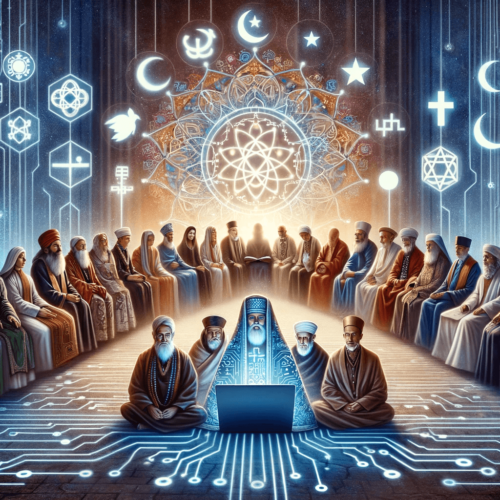In today’s technologically advanced world, the ethical impact of technological advancements is a topic of ongoing concern. While we often consider factors such as privacy, security, and societal implications, one aspect that deserves more attention is the religious influences in the ethics of technology. Religion has long been intertwined with various aspects of human existence, including politics, morality, and values. As technology becomes increasingly integral to our lives, it is crucial to examine the role that religious beliefs play in shaping our ethical frameworks surrounding its development and use.
The Intersection of Religious Beliefs and Technology
Religion shapes individuals’ moral and ethical compasses, providing them with guidelines for virtuous living. It influences how individuals perceive the world and their responsibilities towards it. As technology continues to reshape our societies, religious perspectives play a significant role in navigating the ethical dilemmas it presents. For example, the Catholic Church’s stance on reproductive technologies or the debates surrounding the use of artificial intelligence in creating autonomous weapons systems are just a few instances where religious beliefs are deeply ingrained in the discussion.
The Influence of Fundamentalism
Religious fundamentalism, wherein believers adhere rigidly to the literal interpretations of religious texts, can have profound implications for the ethics of technology. Some interpretation of religious texts may conflict with the advancements in science and technology, leading to resistance or opposition. Questions surrounding issues like genetic engineering, stem cell research, or even the use of contraception often arise due to religious fundamentalism. These conflicts highlight the tension between embracing technological progress and remaining faithful to religious doctrines.
Ethical Frameworks and Religious Morality
Religious morality often provides individuals with a robust ethical framework within which to evaluate the consequences of technological advancements. Concepts such as human dignity, sanctity of life, and the common good, rooted in religious teachings, serve as guides when considering the ethical implications of emerging technologies. For instance, Jainism’s principle of “Ahimsa” (non-violence) can influence debates surrounding the development of military drones or lethal autonomous weapons.
Liberation Theology and Social Justice
Religious traditions, particularly liberation theology, emphasize social justice and equality. The ethics of technology must take into account how advancements can either promote or undermine these principles. Technological disparities between the developed and developing world, or the digital divide, raise questions of access and fairness. Religious influences can inspire individuals to advocate for equitable distribution of technological resources and to close the gaps that hinder social progress.
The Call for Interfaith Dialogue
Exploring the religious influences in the ethics of technology necessitates engaging in interfaith dialogue. Recognizing the diversity of religious perspectives allows for a more inclusive and comprehensive approach to these issues. Interfaith dialogue fosters mutual understanding, encourages empathy, and serves as a mechanism to bridge the gaps between various ethical viewpoints. By actively involving religious leaders, scholars, and theologians in discussions surrounding technological advancements, we can ensure that our ethical frameworks are well-rounded and considerate of the diverse beliefs in our society.
Conclusion: The Way Forward
As technology continues to shape our lives, it is imperative to acknowledge the influence of religious beliefs in the ethics of technology. By incorporating religious perspectives into the dialogue, we can broaden our understanding and address ethical dilemmas more comprehensively. Through interfaith dialogue and a deep appreciation for the complex landscape of religious influences, we can strive for technological advancements that align with our shared values, promote justice, and harness the potential of technology for the betterment of humanity. By leveraging the rich tapestry of religious ethics, we can navigate the ever-changing realm of technology with wisdom, compassion, and humility.
